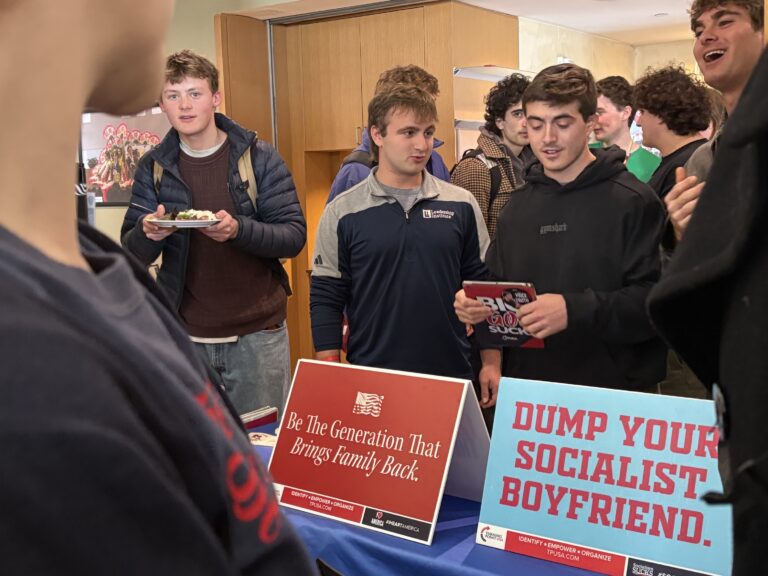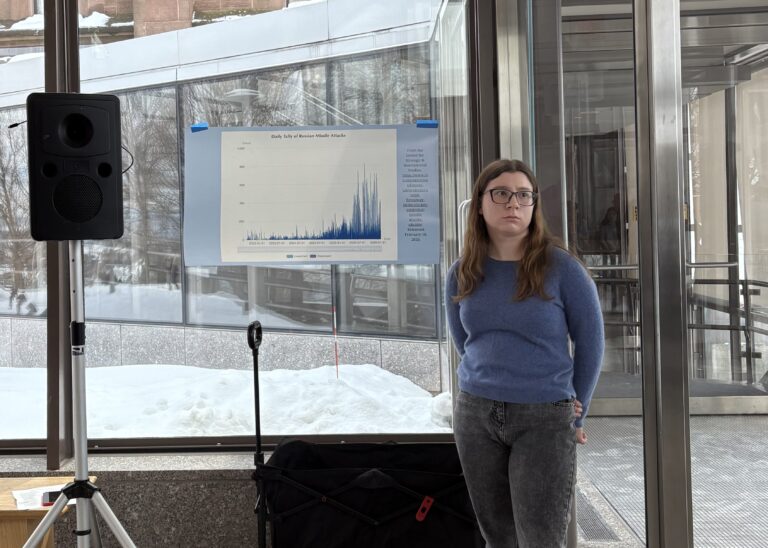Bell Talks Ethnographic Study on the Tea Party

Yesterday afternoon, Visiting Assistant Professor of Anthropology Sierra Bell provided students with an anthropological perspective on the Tea Party movement and its theories on power in a lecture entitled “This is Gonna Sound Like a Conspiracy Theory.”
Bell is also the author of the book “Apocalyptic Politics: Liberty and Truth in Tea Party America,” which pulls from her own ethnographic research on Tea Party activists in Connecticut. Her talk mainly revolved around her fieldwork with Tea Party activists in Connecticut from 2010 to 2012, but she also argued the movement is surprisingly relevant still today.
Bell said that while the Tea Party usually disagrees with the left, there is actually one major concern they share: neoliberalism. She described neoliberalism as the dominant system since the 1970s by which financial, economic, and, political interests supersede all others.
In her conversations with activists, she found that their views on neoliberalism, rising inequality, the culpability of major financial institutions in the financial crisis, and resentment toward the bailout of the banks to be surprisingly cogent and drew upon accurate, publicly available information.
At the same time, the movement also was deeply paranoid about government and economic institutions, and saw them as responsible for the death of the American dream, as well as the ongoing economic crisis.
“Broadly my work argues there is an intimate link between the impulse to narrate the world in terms of conspiracy theories and the multi-institutional forms of power that constitute neoliberal governance and the stark inequalities in wealth and power that govern it,” Bell said.
“If we had recognized this part of the movement and engaged with it instead of making fun of how they were stapling tea bags to their heads maybe we could have formed a useful coalition,” she continued. “Secondly, maybe we could have prevented them from turning even further right, [and] seeing progressives as only ever their enemies and paving the way for Donald Trump.”
One attendee asked why this political movement would share the understanding that the current economic system has led to income inequality and service of corporate interests, but instead of turning to a political party more critical of corporations, see market capitalism as the solution.
“Their overall approach is the way to conquer this unholy marriage of governmental, corporate, and financial institutions was to keep them firmly and squarely separate,” Bell said. “To actually make it so that government did not have the power to do these things like bailouts…or do things like regulate Monsanto—because if they do that, they’re only going to co-opt Monsanto.”
Some students who attended the talk took interest in the fact that despite seemingly opposite ideologies, the left and the Tea Party shared a similar critique of the economic system.
“It’s tough because the Tea Party is coming from a point that’s so racist, bigoted, scapegoating, and extreme leftists probably have radical ideas, but they’re still talking about the same things,” said Henry Fowler ’20. “I didn’t realize there was going to be common ground.”
Mason Mandell can be reached at mjmandell@wesleyan.edu.








Leave a Reply